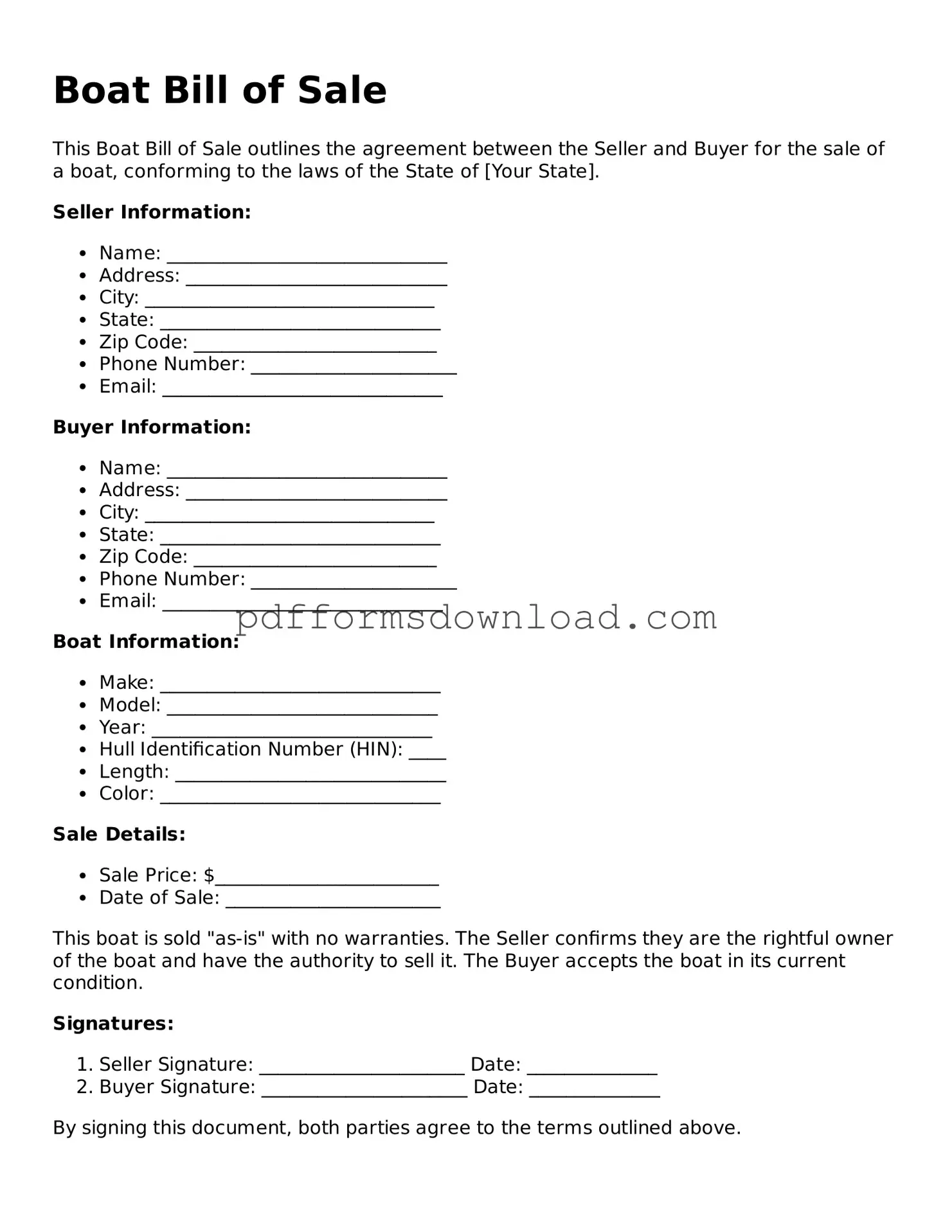Official Boat Bill of Sale Document
A Boat Bill of Sale is a legal document that serves as proof of the transfer of ownership from one party to another for a boat. This form includes essential details such as the buyer's and seller's information, the boat's description, and the sale price. To ensure a smooth transaction and protect both parties, it is crucial to fill out this form accurately.
Ready to complete your Boat Bill of Sale? Click the button below to get started!
Make This Document Now

Official Boat Bill of Sale Document
Make This Document Now

Make This Document Now
or
Free PDF File
Your form is almost ready
Complete your Boat Bill of Sale online — edit, save, and download easily.